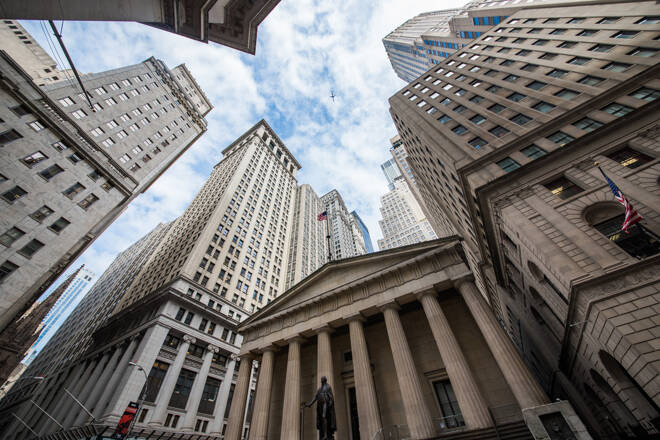Advertisement
Advertisement
‘No Company is Entirely Immune From a COVID-19 Led Economic Slowdown’ Says Fidelity’s Simnegar
By:
No business is completely immune from a COVID-19 led economic slowdown and the ongoing global pandemic isn't affecting all industries and its stocks in the same way, said Sammy Simnegar, portfolio manager in the equity division at Fidelity Investments.
No business is completely immune from a COVID-19 led economic slowdown and the ongoing global pandemic isn’t affecting all industries and its stocks in the same way, said Sammy Simnegar, portfolio manager in the equity division at Fidelity Investments.
So far, the deadly coronavirus has infected over 14 million people in 188 countries and killed more than 600 thousand, impacting day-to-day businesses worldwide.
“We shouldn’t think of how COVID-19 is affecting the stock market in monolithic terms because the opportunities and risks are very different at the company level… we try to identify the potential ‘winners’ and ‘losers’ in a post-pandemic world,” noted Fidelity’s Simnegar.
Microsoft
Fidelity’s Simnegar thinks Microsoft is resilient. Microsoft has two main businesses – its Office software suite and its Azure cloud-services operation. Because Office and Azure help customers to be more productive and competitive, Simnegar believes spending on these products is not likely to be hurt much by an economic slowdown, Fidelity noted.
Twenty-four analysts forecast the average price of Microsoft in 12 months at $219.11 with a high forecast of $260.00 and a low forecast of $190.00. The average price target represents an 8.00% increase from the last price of $202.88. From those 24, 23 analysts rated ‘Buy’, one rated ‘Hold’ and none rated ‘Sell’, according to Tipranks.
Morgan Stanley target price is $230 with a high of $290 under a bull scenario and $150 under the worst-case scenario. We think it is good to buy at the current level and target at least $230 as 50-day Moving Average and 100-200-day MACD Oscillator signals a strong buying opportunity.
Amazon
Amazon is another name Simnegar thinks could continue to take market share during this uncertain time. The company’s logistical advantages allow it to ship essential items to Amazon Prime customers with same-day shipping, Fidelity noted.
Thirty-nine analysts forecast the average price of Amazon in 12 months at $2,991.34 with a high forecast of $3,700.00 and a low forecast of $1,987.00. The average price target represents a 0.99% increase from the last price of $2,961.97. From those 39, 36 analysts rated ‘Buy’, two rated ‘Hold’ and one rated ‘Sell’.
Morgan Stanley target price is $3,450 with a high of $4,200 under a bull scenario and $2,200 under the worst-case scenario. We think it is good to buy at the current level and target at least $3,400 as 50-day Moving Average and 100-200-day MACD Oscillator signals a strong buying opportunity.
Facebook and Google
Large media and entertainment holdings in the fund as of the end of May included Facebook and Google-parent company Alphabet. Simnegar thinks usage of these services has increased among many customers since they started sheltering at home due to COVID-19.
Thirty-four analysts forecast the average price of Facebook in 12 months at $257.04 with a high forecast of $300.00 and a low forecast of $185.00. The average price target represents a 6.20% increase from the last price of $242.03. From those 34, 29 analysts rated ‘Buy’, five rated ‘Hold’ and none rated ‘Sell’.
Morgan Stanley target price is $270 with a high of $325 under a bull scenario and $185 under the worst-case scenario. We also think it is good to buy at the current level and target at least $270 as 50-day Moving Average and 100-200-day MACD Oscillator signals a strong buying opportunity. Check this for Google stock forecast.
Others
Other top holdings included credit card companies Visa and MasterCard, as well as Home Depot. The first two continued to ride the strong secular trend toward electronic payments, while Home Depot has benefited from customers who have spent more time in their homes and, therefore, have dedicated more money toward home improvement, Fidelity noted.
About the Author
Vivek Kumarauthor
Vivek completed his education from the University of Mumbai in Economics and possesses stronghold in writing on stocks, commodities, foreign exchange, and bonds.
Advertisement
